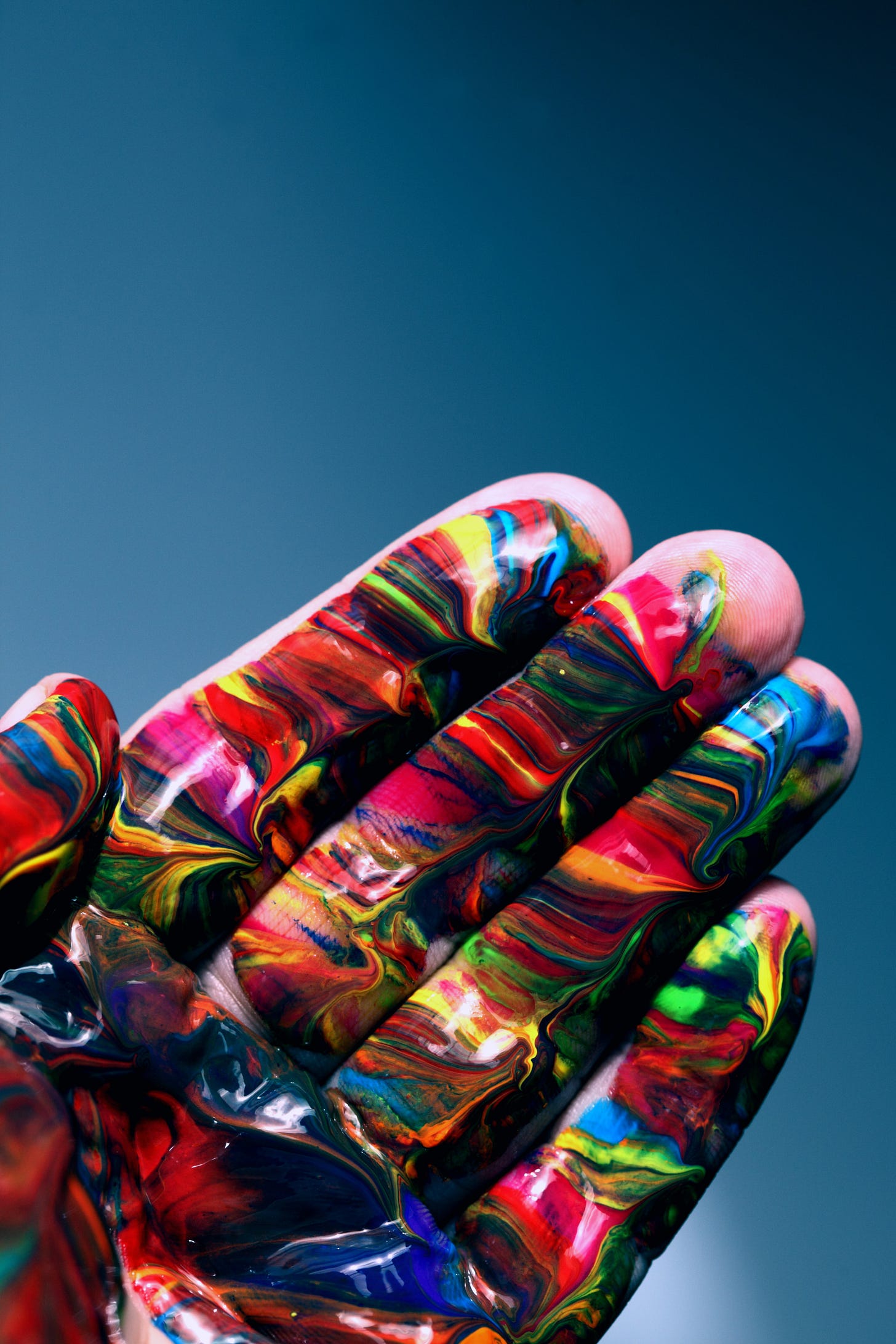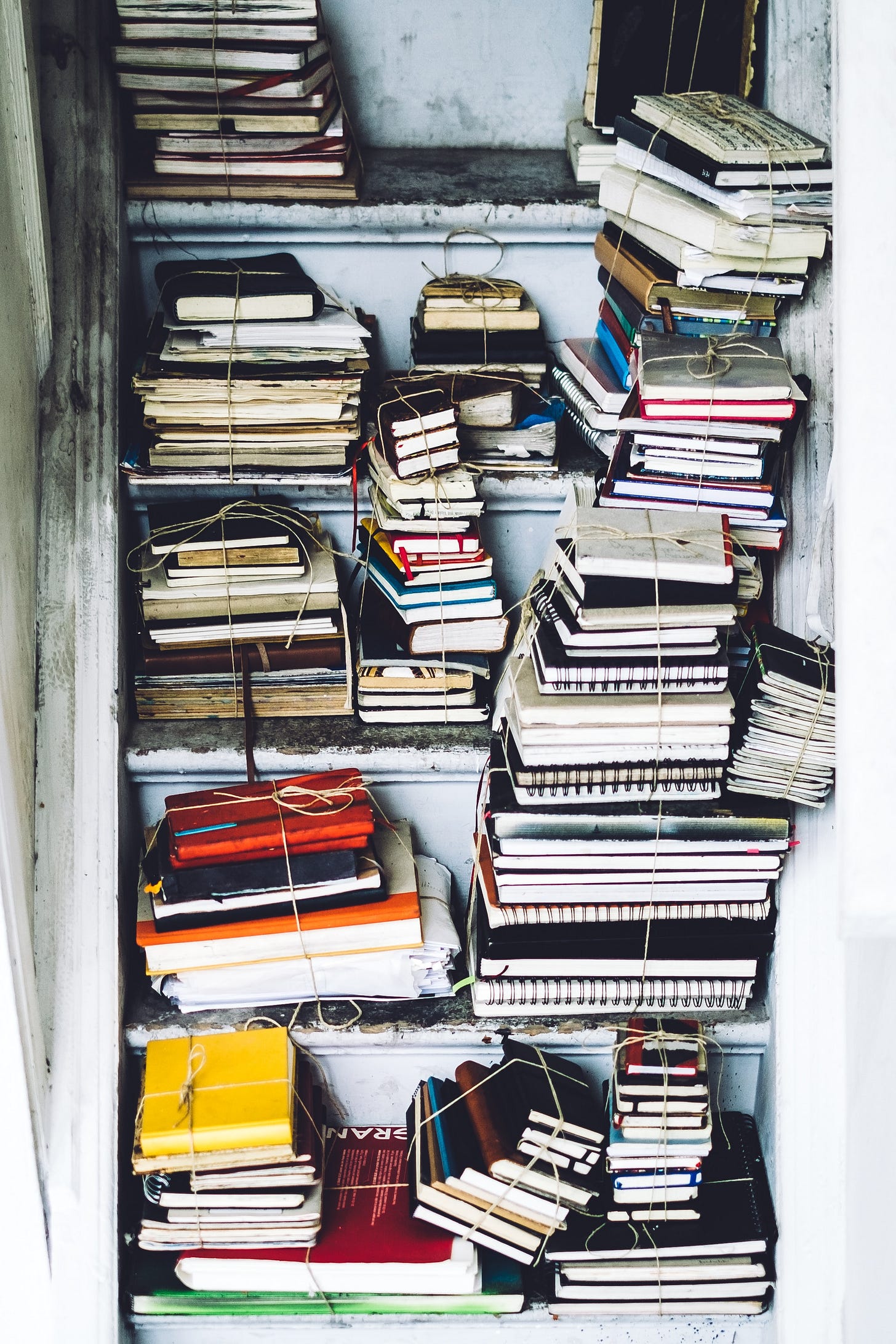Hello! We have a bunch of new folks here, probably from my recent post, Protect Your Creative Self: An Artist’s Manifesto in the Digital Age. Welcome to The Slow Take. I’m writer Heather Lanier (author of Raising a Rare Girl, and Psalms of Unknowing). This is my occasional newsletter about the strangeness & beauty of being human.
In my last post, I talked about the importance of prioritizing creativity over promotion, connection over hustle. But what does it look like to protect our Creative Self? If you’re an artist, how do you keep the Promoting Self secondary?

Today, I want to offer some practical strategies. Take what resonates, discard what doesn’t. And feel free to share your own strategies in the comments below.
1. Spend more time doing creative work than promotional/business work.
This strategy can’t work for all seasons. Sometimes, like near a book “launch,” we writers/artists have lots of business-y tasks. Or, sometimes we just can’t find the margins in our lives to write or make. At these times, small promotional gestures—e.g., submitting work, sharing a published piece online—can help us feel like our art matters.
But during most seasons, I ask myself: How much time have I given to my creative work this week? Is it, on average, more than the businessy stuff? I want the answer to be “yes,” because when I give my time to creativity, I’m giving to something larger than myself. (And that, friends, is what wise gurus and sages tell us is the key to happiness.)
When the promo-to-creation equation is off-kilter or a draw, I apply this strategy:
2. Give your best time to creative work.
If the first strategy is about quantity of time, this one is about quality.
Just before releasing Psalms of Unknowing, I read all kinds of promotion-related things online, including the Substack of
(author of the worthwhile self-promo bible, Before and After the Book Deal). But even Maum, according to her own Substack, has found a way to protect her creativity. She shared that she doesn’t write fiction every day. But she *does* write first thing Mondays, Tuesdays, and Thursdays—and for good chunks of time. She saves her Substack work until later in the day. (Substack can be either creative or promotional, depending on what you write there.)When are you at your best? Work creatively at that time. Protect it. Try so very hard not to waste those hours on email or social media.
My best time is usually first thing in the morning, before the day’s demands have encroached on my mind. I leave promotion-related tasks until immediately following a writing session, or during my reliably foggy hours (3-5pm). Plenty of authors advise this. Julianna Baggott has called it “paying yourself first.” Regardless of when you work best, protect those hours.
3. Protect the rituals and conditions Creativity needs to flourish.
Maybe it’s good-enough sleep. Or daily movement. Walks before writing. What do you need to nurture your Creative Self, to keep her close at your side instead of hiding from you?
I close down all email while I’m writing. I also have a certain candle I light only when drafting. Same with music: a playlist I only play when I’m writing creatively, so that I connect it Pavlovian-style with getting into the zone. (You could probably make a totally different playlist for your Hustle Self! I haven’t tried that yet. “Eye of the Tiger”?)
What does your Creative Self need? What one small thing can you do this week to support her/them/him?
4. Quiet the Self-Promo Roommate.
My Creative Self is, by nature, quiet, and my Promo Self can get loud. Maybe this is because the values of the Promo Self are megaphoned by the culture—can you profit from that!? market that!? etc.
If, during my idle time, I’m thinking more about book swag than book structure, about a Substack’s subheadings than a sonnet’s similes, then I start to feel like a peddler of creativity more than a maker of it. And this bums me out. (See above, re: “happiness is thinking about something larger than the self.”)
One way I turn the volume up on my Creative Self is by occasionally turning the volume down on my Promoting Self. I’m all ears for your strategies here, but what works for me is taking intentional fasts from social media and having some boundaries around cell phone use. I try to fast from email and social media during the first few hours of every day (try = the operative word), and every week I take a full day off from the online world. For one week a year, I unplug entirely. It’s hard. I don’t always love it. But it helps me recalibrate.
5. Return to Creativity’s Source.
When I find myself off-kilter, and/or my Creative Self is in hiding, I fill my artist’s well (a la Julia Cameron). I seek out art and other activities that inspire me. That fill me up and are full of play. I write my morning pages. I tap into my uncensored mind, let stream of consciousness reign. I do something for no good reason except that it tickles my artist-foot: take a daily photo of different grasses, watch swirls of water flow at a local creek, spend a really long time analyzing the ever-shifting flavors of bubble-gum as it’s reduced to rubber in my mouth. List concrete nouns I love the sound of.
There are a lot of options. Choose something you can’t commoditize. That seems to be key.
6. Remember that the promotion of the work is never as important as the work itself.
This tip is more conceptual than practical. Sometimes it helps just to remind myself of this truth. No publication or prize has ever been as rewarding as the making of the art itself. The hour of writing, the daily bowing to the altar of the subconscious vis a vis my opened laptop—that’s what fuels me. No likes or digital hearts or retweets can compete.
Tell me, what works for you? How do you prioritize Creativity in a world that wants your hustle?


Tidbits
Sometimes promotion is a LEGIT joy! I really enjoyed this interview with
, who asked me great questions about Psalms of Unknowing. If you want to learn more about how I wrote that book of poems, and/or how my writing intersects with my spiritual practice, check out the full interview.Is generative AI ableist? I highly recommend George Estreich’s essay on that very question.
The world is half terrible.
told us that. We make art anyway. How? Why? If you’re asking yourself these questions, I recommend this episode, “How Can We Go On?” from the podcast.






I loved our conversation! You inspired me to reinstate the Examen as a daily practice.
Also, saving/underlining this bit: "There are a lot of options. Choose something you can’t commoditize. That seems to be key."
Thanks for the shout out!